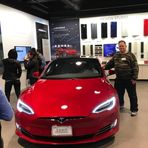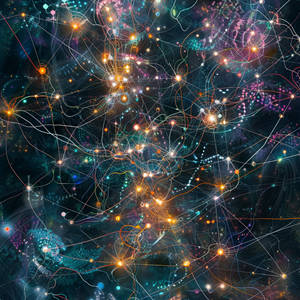The Race for AI Supremacy: Musk's Memphis Supercluster and Its Implications
July 27, 2024, 9:44 am

Location: United States, Texas, Austin
Employees: 10001+
Founded date: 2003
Total raised: $3.86B
In the ever-evolving landscape of artificial intelligence, Elon Musk has once again thrown his hat into the ring. With the announcement of the Memphis Supercluster, Musk aims to establish xAI as a formidable player in the AI race. This ambitious project, boasting 100,000 liquid-cooled H100 GPUs, is touted as the most powerful AI training cluster in the world. But as with many of Musk's ventures, skepticism looms large.
Musk's announcement came with the usual fanfare. He proclaimed that the Memphis Supercluster would enable xAI to train "the world's most powerful AI by every metric" by December 2024. This bold claim is not just a marketing ploy; it reflects Musk's relentless pursuit of innovation. However, history has shown that Musk's timelines often slip. The tech world watches with bated breath, waiting to see if xAI can deliver on its promises.
The Memphis Supercluster is a behemoth. With its 100,000 GPUs connected through a single RDMA fabric, it represents a significant leap in computational power. This setup is designed to accelerate the training of large language models (LLMs) like Grok, xAI's flagship product. In a world where AI capabilities are rapidly advancing, having the most powerful training cluster could provide xAI with a critical edge.
Yet, the path to AI supremacy is fraught with challenges. Competitors like OpenAI, Google, and Microsoft are not sitting idle. Each is racing to develop more powerful and efficient models. OpenAI, backed by Microsoft, is reportedly working on a $100 billion AI training supercomputer codenamed Stargate. This fierce competition raises questions about the longevity of Musk's claims. Will the Memphis Supercluster remain the most powerful for long?
Skepticism is warranted. Musk's track record is peppered with ambitious deadlines that often go unmet. The Grok chatbot, for instance, has faced criticism for generating inaccurate information. This raises doubts about whether xAI can truly deliver a groundbreaking AI model in the timeline Musk has set.
Moreover, the Memphis Supercluster's power demands have sparked concerns among local residents and officials. Reports indicate that the facility could consume up to 150 megawatts of power at peak times. This substantial requirement has led to discussions with the Tennessee Valley Authority (TVA) about the project's electricity needs. The TVA has yet to finalize a contract with xAI, leaving the project's energy future uncertain.
To mitigate these concerns, Musk has taken proactive measures. He has installed a fleet of 14 natural gas generators to provide supplementary power while negotiations with local utilities continue. This move highlights the complexities of launching such a massive operation. It also underscores the potential impact on Memphis's infrastructure and power grid.
The local community is understandably wary. The Memphis Supercluster represents the largest capital investment by a new company in the city's history. While this could bring economic benefits, residents are anxious about the implications for their power supply. Public forums are being organized to address these concerns, emphasizing the need for transparency in such a significant project.
As the Memphis Supercluster begins its operations, the AI community is on high alert. The potential for groundbreaking advancements in AI is tantalizing. If xAI can deliver on its promises, it could reshape the competitive landscape. However, the stakes are high. The pressure is on Musk and his team to produce results.
In this race for AI supremacy, every move counts. The Memphis Supercluster is a bold statement of intent. It signals Musk's commitment to pushing the boundaries of what is possible in AI. But it also serves as a reminder of the challenges that lie ahead. The road to innovation is rarely smooth.
As we look to the future, the question remains: can xAI rise to the occasion? Will the Memphis Supercluster become a beacon of AI excellence, or will it fade into the background like so many of Musk's other ambitious projects? Only time will tell.
In the world of AI, the competition is fierce. Companies are vying for dominance, each striving to outdo the other. Musk's Memphis Supercluster is a bold play, but it is just one piece of a much larger puzzle. The landscape is shifting, and the outcome is uncertain.
As we watch this unfolding drama, one thing is clear: the race for AI supremacy is far from over. The stakes are high, and the potential rewards are immense. Whether Musk's vision will materialize remains to be seen. But for now, the Memphis Supercluster stands as a testament to ambition, innovation, and the relentless pursuit of progress.
Musk's announcement came with the usual fanfare. He proclaimed that the Memphis Supercluster would enable xAI to train "the world's most powerful AI by every metric" by December 2024. This bold claim is not just a marketing ploy; it reflects Musk's relentless pursuit of innovation. However, history has shown that Musk's timelines often slip. The tech world watches with bated breath, waiting to see if xAI can deliver on its promises.
The Memphis Supercluster is a behemoth. With its 100,000 GPUs connected through a single RDMA fabric, it represents a significant leap in computational power. This setup is designed to accelerate the training of large language models (LLMs) like Grok, xAI's flagship product. In a world where AI capabilities are rapidly advancing, having the most powerful training cluster could provide xAI with a critical edge.
Yet, the path to AI supremacy is fraught with challenges. Competitors like OpenAI, Google, and Microsoft are not sitting idle. Each is racing to develop more powerful and efficient models. OpenAI, backed by Microsoft, is reportedly working on a $100 billion AI training supercomputer codenamed Stargate. This fierce competition raises questions about the longevity of Musk's claims. Will the Memphis Supercluster remain the most powerful for long?
Skepticism is warranted. Musk's track record is peppered with ambitious deadlines that often go unmet. The Grok chatbot, for instance, has faced criticism for generating inaccurate information. This raises doubts about whether xAI can truly deliver a groundbreaking AI model in the timeline Musk has set.
Moreover, the Memphis Supercluster's power demands have sparked concerns among local residents and officials. Reports indicate that the facility could consume up to 150 megawatts of power at peak times. This substantial requirement has led to discussions with the Tennessee Valley Authority (TVA) about the project's electricity needs. The TVA has yet to finalize a contract with xAI, leaving the project's energy future uncertain.
To mitigate these concerns, Musk has taken proactive measures. He has installed a fleet of 14 natural gas generators to provide supplementary power while negotiations with local utilities continue. This move highlights the complexities of launching such a massive operation. It also underscores the potential impact on Memphis's infrastructure and power grid.
The local community is understandably wary. The Memphis Supercluster represents the largest capital investment by a new company in the city's history. While this could bring economic benefits, residents are anxious about the implications for their power supply. Public forums are being organized to address these concerns, emphasizing the need for transparency in such a significant project.
As the Memphis Supercluster begins its operations, the AI community is on high alert. The potential for groundbreaking advancements in AI is tantalizing. If xAI can deliver on its promises, it could reshape the competitive landscape. However, the stakes are high. The pressure is on Musk and his team to produce results.
In this race for AI supremacy, every move counts. The Memphis Supercluster is a bold statement of intent. It signals Musk's commitment to pushing the boundaries of what is possible in AI. But it also serves as a reminder of the challenges that lie ahead. The road to innovation is rarely smooth.
As we look to the future, the question remains: can xAI rise to the occasion? Will the Memphis Supercluster become a beacon of AI excellence, or will it fade into the background like so many of Musk's other ambitious projects? Only time will tell.
In the world of AI, the competition is fierce. Companies are vying for dominance, each striving to outdo the other. Musk's Memphis Supercluster is a bold play, but it is just one piece of a much larger puzzle. The landscape is shifting, and the outcome is uncertain.
As we watch this unfolding drama, one thing is clear: the race for AI supremacy is far from over. The stakes are high, and the potential rewards are immense. Whether Musk's vision will materialize remains to be seen. But for now, the Memphis Supercluster stands as a testament to ambition, innovation, and the relentless pursuit of progress.

